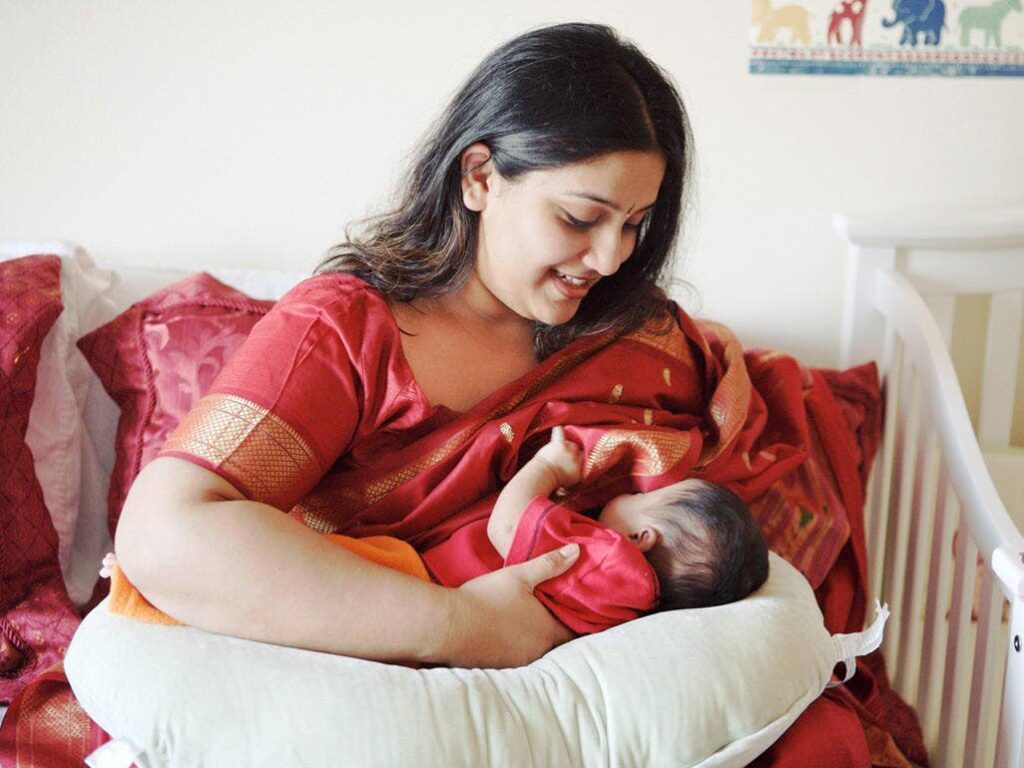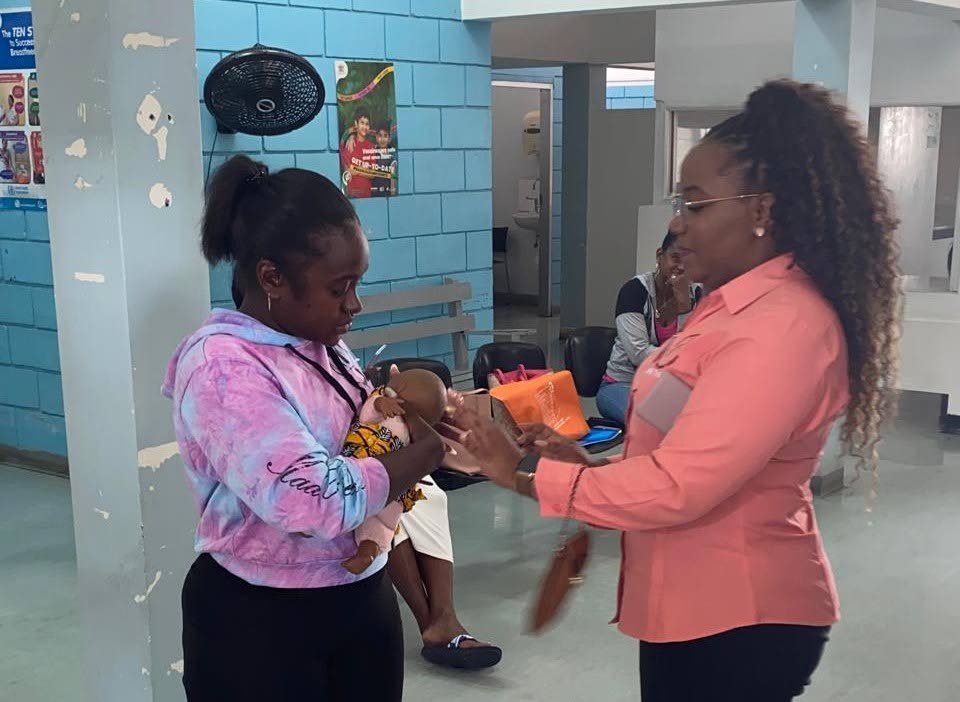Closing the gap – NCRHA's mission to get more mothers to breastfeed

The ability of breast milk to reduce the risk of non-communicable diseases (NCDS) in children was one of the major benefits highlighted as the North Central Regional Health Authority (NCRHA), through the Mt Hope Women’s Hospital and its recently-created Baby Friendly Coordinating Unit, celebrated Breastfeeding Week.
Registered nurse, midwife and the NCRHA’s baby-friendly co-ordinator Mitsy Nicholas-Bennet said even though the week is over, the authority has month-long activities planned to encourage more mothers to breastfeed.
Nicholas-Bennet is also the unit’s co-ordinator.
While it also celebrated the week, the hospital and unit celebrated a year as a baby-friendly accredited facility, a designation given by the Pan American Health Organization on August 5 last year.

Although she believes many young mothers are indeed heeding the call to do so, the authority wants as many people as possible to know of the numerous benefits both child and mother gain from breastfeeding.
In a phone interview on August 6, Nicholas-Bennet said the month's activities include calypso competitions, hamper giveaways and a breastfeeding corner where information will be shared on how to increase breast-milk supply and how to elevate breastfeeding rates.
Breastfeeding Week is observed on the first week of August. This year’s theme is Closing the Gap: Breastfeeding support for all.
The World Health Organization (WHO) said in a 2023 article on breastfeeding that undernutrition was estimated to be associated with 2.7 million child deaths annually, or 45 per cent of all child deaths.
It added that infant and young child feeding was a key area to improve child survival and promote healthy growth and development.
“The first two years of a child’s life are particularly important, as optimal nutrition during this period lowers morbidity and mortality, reduces the risk of chronic disease and fosters better development overall.
“Optimal breastfeeding is so critical that it could save the lives of over 820,000 children under the age of five each year.”
Nichols-Bennett has worked at the NCRHA for more than two decades and believes the authority’s constant messaging about the benefits of breastfeeding has worked for the benefit of all of TT.
She said the issue was not one just for nurses or mothers but all of society.
“One of the benefits of breastfeeding is to reduce NCDs in our children, and if we start it right, the end result would be beneficial to all. There would be less cancers, diabetes, hypertension, renal failure...
“Babies would have received the right start. So we look at caring for that person throughout their lifespan.”
Not only does it reduce the risk of NCDs but it also builds the child’s immunity, aids in healthy development, reduces childhood obesity, cancers and diabetes and, for mothers, is cost-effective and reduces the risk of breast and cervical cancers.
Throughout this year’s Breastfeeding Week, the authority hosted and co-ordinated activities among its staff and clients at the Mt Hope Women’s Hospital and its health centres.
All these activities have resulted in more women leaving their clinic breastfeeding, although they were also given the opportunity to choose, she said.
Another way it encouraged breastfeeding was to give mothers their child for an hour immediately after birth to facilitate skin-to-skin bonding and initiation.

The WHO recommends early initiation of breastfeeding within an hour of birth.
Nicholas-Bennet said the authority and unit had also partnered with other groups such as the Breastfeeding Association of TT to amplify their messages.
Another planned event is a fair on August 17 where women and their families could get more information on family planning and breast-milk supply, among other issues.
“We did not only cater for the mummies, we catered for the fathers as well. While Mummy is breastfeeding there are ways in which daddies can support. So we have a little booth to meet with Daddy to find out how they are coping.”
Nicholas-Bennet called for more support for mothers, saying when a child is born, the parents’ lives change forever and a mother needed that support to allow for a smooth transition to motherhood.
Asked about more women having children later on in life, Nicholas-Bennet said this would not affect breastfeeding. She said Mt Hope Women’s Hospital has a clinic that caters to the needs of women of advanced maternal age, who were closely monitored and given medication, she added.
But she wanted all of TT to know that age does not affect a woman’s ability to produce milk. Nicholas-Bennet gave the scientific reason as to why age does not affect this, saying that it was dependent on oxytocin and a mother seeing, smelling and hearing her baby.
“That helps her produce the oxytocin, and by extension it produces the prolactin and we have let-down.”
The Canadian Breastfeeding Foundation said on this issue, “If the mother is menopausal due to surgical removal of her reproductive organs or naturally occurring menopause, she can still breastfeed and bring in her milk supply. A woman does not need a uterus or ovaries in order to breastfeed. All she needs are breasts and a functioning pituitary.”
Nicholas-Bennet felt the NCRHA was doing its best to promote breastfeeding and many women were benefiting.
Apart from these many initiatives, there are also daily posts on the authority’s social media pages about the month-long activities.
A picnic was also being planned in the near future for mothers to come and freely breastfeed, a wider part of the Free the Best campaign, she said.

Comments
"Closing the gap – NCRHA’s mission to get more mothers to breastfeed"